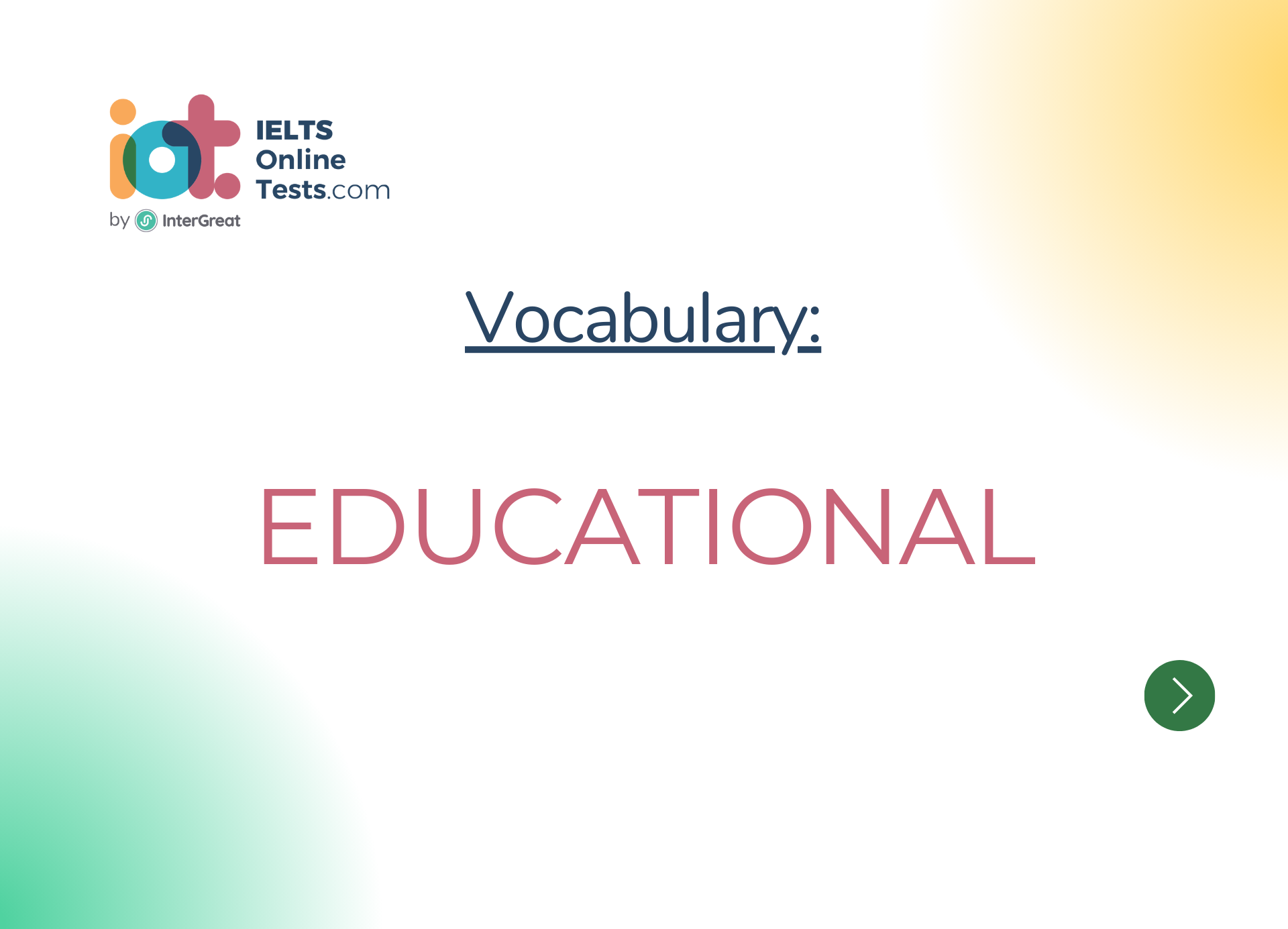
Educational
Here's a lesson on vocabulary related to "Educational" for the IELTS band score 3.0-4.5:
I. Educational Systems:
Primary education: The first stage of formal education, typically for children aged 5 to 11 years.
Secondary education: The stage of education following primary education, usually for students aged 11 to 18 years.
Tertiary education: Education at the college or university level, including undergraduate and postgraduate programs.
Vocational education: Training and education that prepares individuals for specific occupations or trades.
Distance learning: Education where students and instructors are physically separated and communicate through online platforms or correspondence.
Public education: Education provided by the government and funded through taxes.
Private education: Education provided by independent institutions that charge tuition fees.
Homeschooling: The practice of educating children at home by parents or tutors.
Montessori education: An educational approach that emphasizes self-directed learning and hands-on activities.
International schools: Schools that cater to students from various countries and offer an international curriculum.
II. Educational Goals:
Knowledge acquisition: The process of gaining knowledge and understanding in various subjects or disciplines.
Skill development: Enhancing specific abilities or competencies through learning and practice.
Critical thinking: The ability to analyze, evaluate, and solve problems using logical and rational reasoning.
Creativity: The ability to generate original and innovative ideas and approaches.
Lifelong learning: The continuous pursuit of knowledge and skills throughout one's life.
Literacy: The ability to read and write proficiently.
Numeracy: The ability to understand and work with numbers effectively.
Problem-solving skills: The ability to identify and solve problems using logic and critical thinking.
Cultural awareness: Knowledge and understanding of different cultures and cultural diversity.
Global citizenship: A sense of belonging to the global community and understanding global issues.
III. Educational Resources:
Textbooks: Books specifically written for academic study and learning.
Reference materials: Books or online resources that provide detailed information on specific subjects.
Educational technology: Tools, devices, and software used to support and enhance teaching and learning.
Library resources: Books, journals, databases, and other materials available in a library for research and study.
Multimedia resources: Audio, video, and interactive materials used to facilitate learning.
Educational websites: Online platforms or websites that offer educational content, courses, and resources.
E-books: Digital versions of books that can be read on electronic devices.
Online libraries: Digital repositories of books, articles, and other educational materials.
Multimedia presentations: Audio, video, or interactive materials used to deliver educational content.
Open educational resources (OER): Freely available learning materials that can be shared, modified, and distributed.
IV. Educational Assessment and Evaluation:
Examinations: Formal assessments that evaluate knowledge and skills in a specific subject.
Assignments: Tasks or projects given to students to assess understanding and application of learning.
Grading: The process of evaluating and assigning scores or grades to student work.
Rubrics: Guidelines or criteria used to assess and evaluate student performance or work.
Feedback: Information or comments provided to students regarding their performance or progress.
V. Teaching and Learning Methods:
Lectures: Formal presentations or talks given by instructors to provide information and explanations.
Discussions: Interactive sessions where students exchange ideas, opinions, and perspectives on a specific topic.
Group work: Collaborative activities or projects that involve students working together in teams.
Hands-on learning: Learning through practical activities, experiments, or real-world experiences.
Self-study: Independent learning and study outside of formal classroom settings.
Remember to practice using these vocabulary words in sentences and conversations to improve your understanding and fluency in English.




